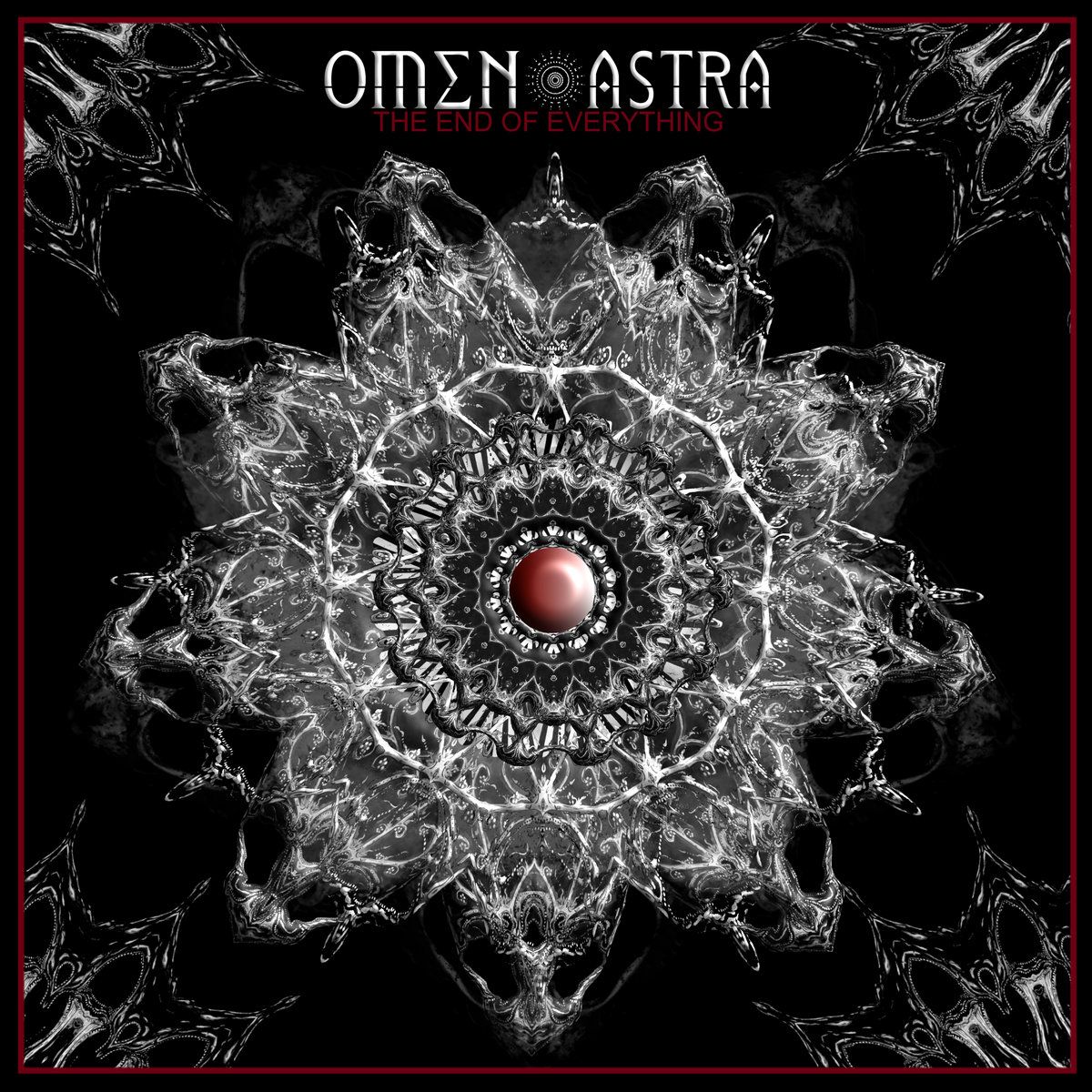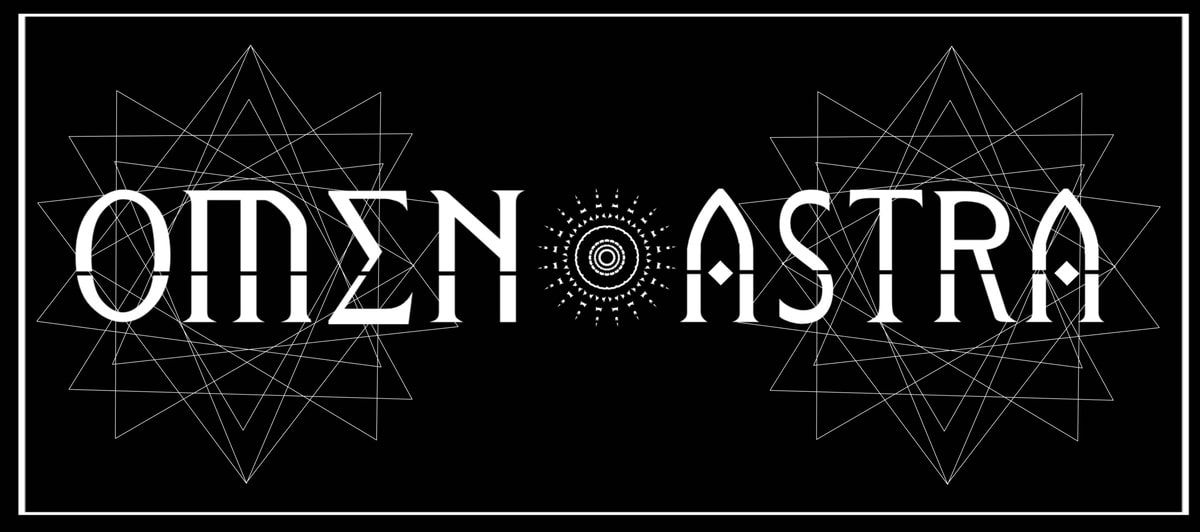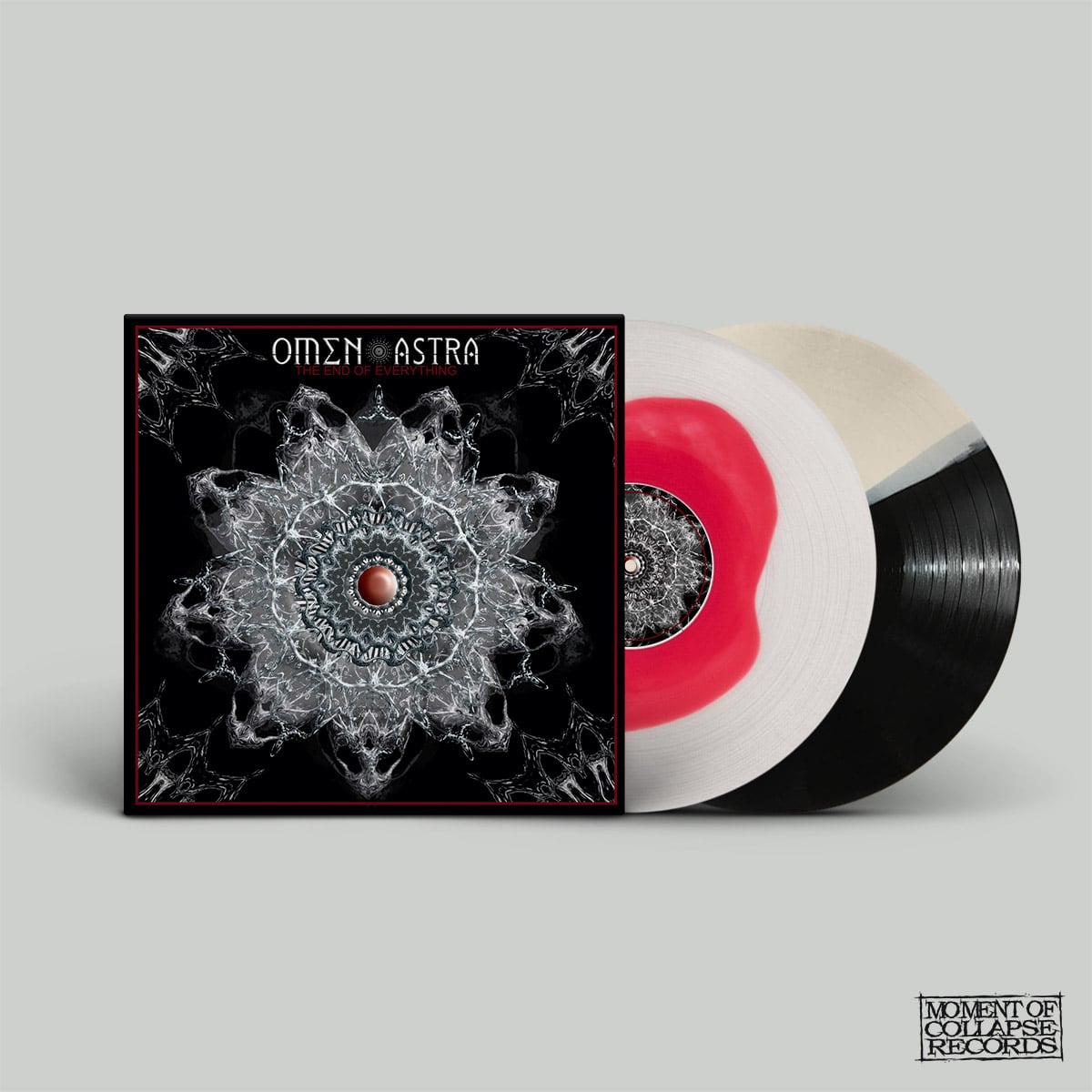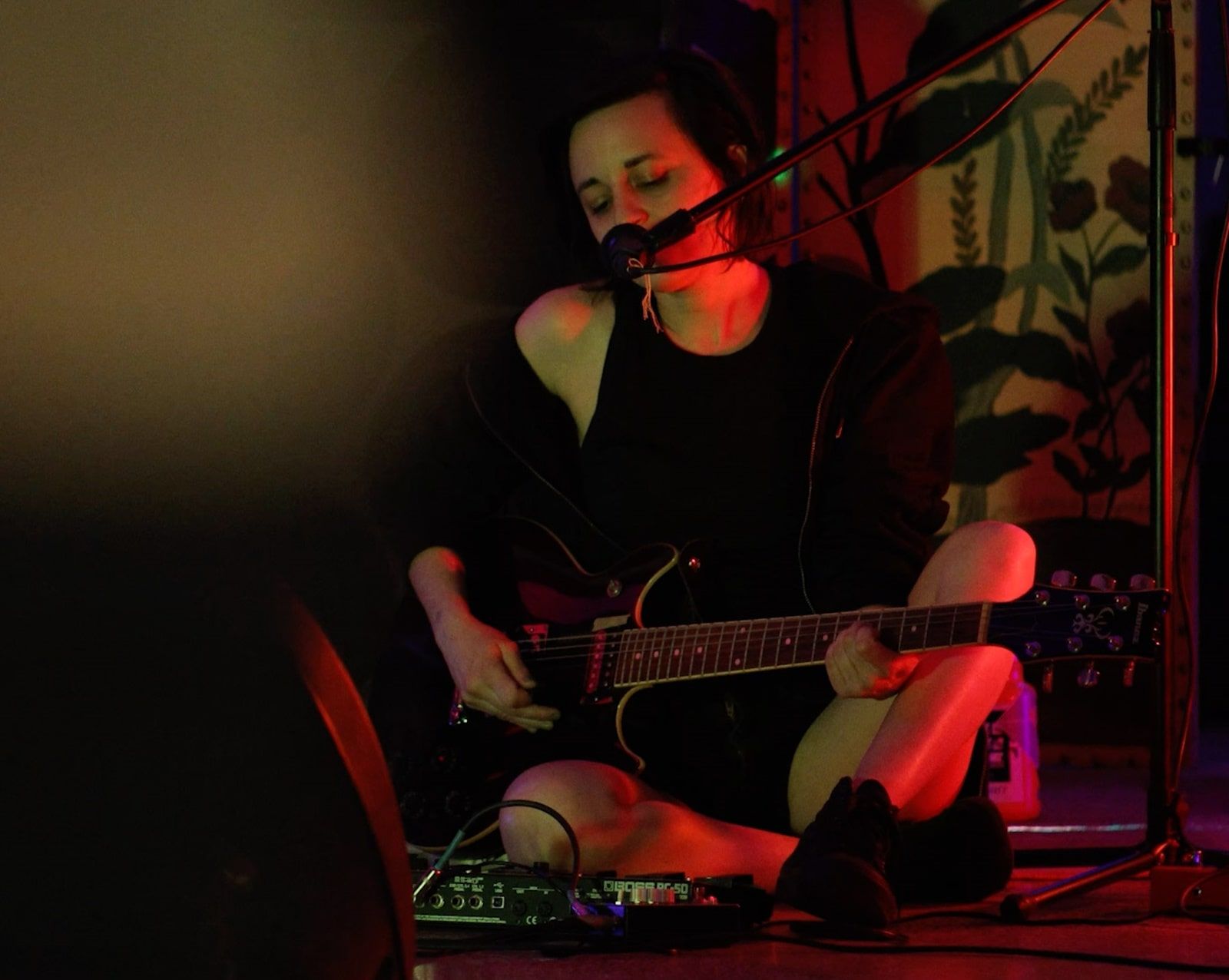The Canadian progressive post-metal trio OMEN ASTRA have unleashed their powerful debut album “The End Of Everything” through a collaborative effort of Hypaethral Records (Canada), Protagonist Music (US), and Moment Of Collapse (Europe), this much-anticipated album promises an epic musical journey. Today, we sit down with the band’s guitarist Dave Buschemeyer (Omen Astra, New Day Rising, Spread The Disease, The Abandoned Hearts Club, Unsufferable), to discuss this opus in detail and unveil the creative process behind Omen Astra’s unique sound.
In our interview below, Dave discusses the balancing act of heavy and melodious elements, channeling influences ranging from Neurosis to Britpop. Buschemeyer candidly shares how the process of creating music, particularly during a personal existential crisis, served as a form of catharsis. He explains his approach to songwriting, stressing the role of experimentation and the integration of diverse musical elements, all while maintaining a seamless narrative flow. He also delves into the meticulous crafting of a cohesive aesthetic, from music to visuals, reflecting on the meditative calmness present in their heavy yet serene compositions. Overcoming challenges like the mix of their album ‘The End of Everything,’ Buschemeyer reveals plans for future EPs, potential collaborations, and a hope for live performances. Check it out in detail after a scroll.
With a potent mix of sludgy rhythms, hardcore grit, and an apocalyptic ambiance reminiscent of Neurosis and Minsk, “The End Of Everything” has been described as an energizing blend of sounds that bristle with explosive energy. This is no surprise, given OMEN ASTRA’s lineup comprises seasoned musicians from The Black Maria, Spread The Disease, New Day Rising, and The Abandoned Hearts Club.
The band’s unique sound draws from the darker, heavier side of music, mingling influences from bands like Neurosis, Gojira, and even David Bowie. However, the band’s genre-bending aesthetic doesn’t stop there, weaving in anthemic hardcore and a subtle hint of rock’s melodic sensibilities. This results in a captivating fusion that is both crushingly powerful and memorably catchy.
Created in Hamilton, Ontario in 2021, OMEN ASTRA has stayed committed to producing a dark and impactful metal experience. The End Of Everything, engineered and mixed by the band’s own Dave Buschemeyer at Bravo Studios, is a testament to this vision. Mastered by Greg Dawson at BWC Studios, the album showcases meticulous craftsmanship and an evolved sound, promising to leave listeners enthralled.
OMEN ASTRA’s debut has already earned accolades from Mike DiSalvo (Cryptopsy, Akurion, Coma Cluster Void, Infestation), who hailed the album as “absolute fire” and praised its diverse vocals, heavy atmosphere, and powerful riffs. MetalSucks also lauds the album’s “almost epic scale.”
In their own words, OMEN ASTRA hopes to suffocate listeners in a vast sonic space before drawing them back to reality with powerful melodic sensibilities. This is just the beginning for OMEN ASTRA.
For fans of: Cult of Luna, Gojira, Neurosis, Sumac, Mare, The Ocean, Intronaut, Mouth of the Architect
The End of Everything presents a captivating and chaotic sonic landscape, blending various genres and influences. How did you manage to balance the contrasting elements of darkness and beauty in your compositions, and what challenges did you face in creating this unique musical experience?
Interview with Guitarist Dave Buschemeyer (Omen Astra, New Day Rising, Spread The Disease, The Abandoned Hearts Club, Unsufferable)
Great question. Since we were in New Day Rising together back in the 90s we’ve always strived to create that balance between beauty and heaviness. It’s the same kind of mixture of elements that we love in bands as wide-ranged as Faith No More to Neurosis to certain bands in Brit Pop. Once I knew that Chris was on board to be the vocalist, I knew he would take things in a melodic direction, but what I didn’t realize at the time of jamming and recording, was that he was about to bring his heavy screaming A-game AS WELL as his beautiful singing voice. The guy can honestly do it all. I’ve said it before, he’s the Mike Patton of hardcore/metal. He’s that good. I know I’m biased because I’ve been in multiple bands with the guy, but THIS record is truly Chris at his best. It’s unreal how much fire that guy brought to the table. Musically, I’ve always written things to try and leave a little space. And while the record is dense and heavy, it also has much of that space necessary to be able to create an interweaving of melodicism. Omen Astra might just be my most cohesive songwriting to date. But, I’ll leave that to others to decide.
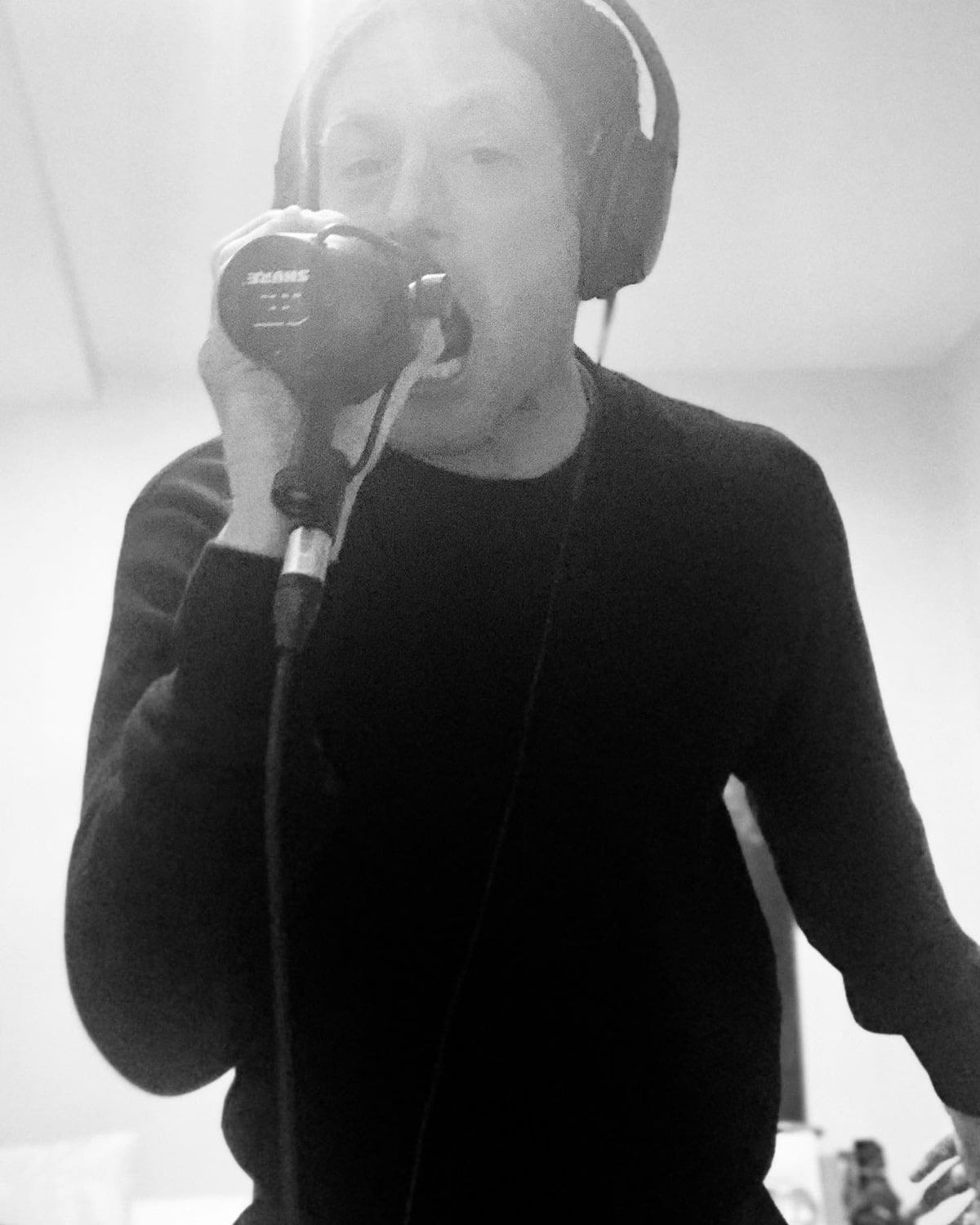
Your music has been described as an exploration of a specific vibe, incorporating influences ranging from Neurosis to Britpop. Can you elaborate on how these diverse inspirations came together and what role they played in shaping the overall sound and direction of Omen Astra?
For sure. I personally had a very specific question in mind while writing this album, “What would Neurosis do?” It’s funny, because I’m not a fanboy, despite appreciating Neurosis more and more. But, to me, it was a way of putting me into the vibe to write a sonically heavy, down-tuned, slow crusher of a record with tons of vibe and a good assortment of Tom-driven parts to allow the space I needed to be able to say what I wanted musically. It was important to me to on one level NOT limit myself creatively, but in some way to shape an overall vibe. So… a kind of limited limitlessness. At the risk of sounding pretentious, that’s the closest I know how to say it. I guess my love for Jazz, avant-garde classical, space rock, etc sort of allowed the openness necessary to be able to break my own musical genre limitations, while also remaining firmly within the heavy scene. Looking back on it, I now realize that being in a space rock band, in my time in Philly, really prepared me for the patience I would need to develop to be able to take on this gigantic personal song-writing task.
Drawing from your experience with The Formless Form and Pink Floyd as an inspiration, how do you decide when a long song has reached its full potential, and what are some key elements you consider when crafting a song that unfolds in an unhurried manner?
Gotta say, these questions are good, in that they really are designed to have me open up about the process. I would say that most of the material starts with an opening riff idea… which is based off of the vibe I am trying to convey. I never really sit with a guitar and work things out that way. Usually, I am humming a riff or a I imaginatively “hear” a part in my head. It’s almost as if I am channeling something beyond myself. Like in some small way, perhaps I have less to do with writing things than I think I do. It really begs the question of agency. The same question comes up in my print practice. I have entire works of art that I can honestly say just comes out of me, and I barely remember the process. It’s perhaps too much to say it’s “inspired”, but it’s also not enough to say I wrote it. I feel like The End Of Everything is similar. As for song lengths, I had a bit of help along the way from some well-meaning criticism from friends that suggested I was dragging things out with my riffs. And I took that to heart at some point and started making things a little more succinct. How a song gets wrapped up is one of the most difficult things to answer. Sometimes it just feels right. Other times, we have to ask ourselves what we’re trying to accomplish with the song. In some way, the music (apart from the lyrics) has its own internal structural narrative, and sometimes the music just begs for what it wants. Again, I know that sounds a bit aloof, but it’s maybe the most truthful thing to say. (Note…. The above is how I feel about Animals by Pink Floyd. It’s as if the music becomes a narrative that demands its own resolutions, its own highs and lows, etc.)
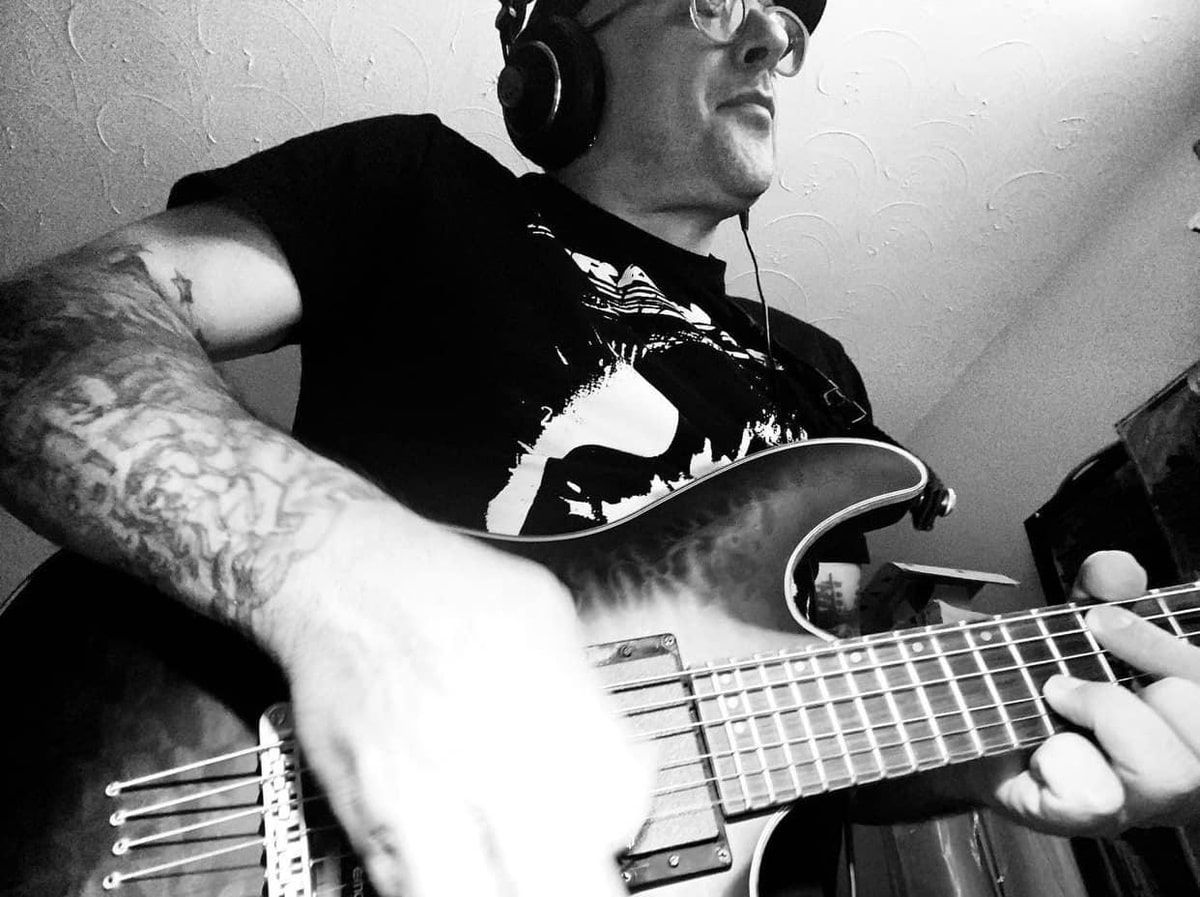
In the context of combining riffs and cannibalizing songs, how do you maintain a cohesive narrative in your music while integrating elements from different sources? Are there any specific techniques or guiding principles you follow to ensure a seamless flow?
No. That’s the straight answer. But I recognize it’s not enough. I do realize that the album flows really well from song to song and even the sides of the record. When writing, there was much attention to making sure elements flowed into each other. Our use of field recordings like water, our use of noise and feedback and the overall sound design is all there as supporting structure for the musical movements to glide through. Several of the songs went through multiple rewrites. At one time, it was even decided to tune down to A standard from C. That made the most difference sonically and it really was the shot in the arm the songs and the vibe needed. As principal song-writer, I suppose that I was like a conductor of sorts… I really did pay attention to how much time was spent between songs, during sound design interludes, etc. It was the first time I ever really embraced that role.
You mentioned that the album’s theme of a bleak future and the balance between hope and despair were influenced by the heavy depression you experienced while writing. How did you navigate the creative process during this time, and did music serve as a form of catharsis or healing for you?
There was a point in time where I had a very real existential crisis happening within me and I needed to come to the decision to change my life. Omen Astra, the music, the process of creating, the interaction between other creatives, reuniting with New Day Rising to write new music, etc… it was absolutely a major part in dragging me out of the depths and into being able to feel like there was meaning again. Most art and music isn’t necessarily a statement of who we are on the canvas or sonic form but instead is the way in which we learn about who we are. I would say that is definitively true for me and my role in Omen Astra. I have learned so much with this process and I DO feel a certain catharsis in having accomplished this.
You mentioned the importance of experimentation in piecing the song together. Can you share more about your approach to experimentation in your songwriting process, and how it has shaped the overall sound of Omen Astra?
Yes… For Omen Astra, I suppose I started playing guitar a little differently. Instead of hammering it home with black metal-inspired riffs or creating melody in a frenetic way, I started creating riff structures and combining riffs that let an underlying melody evolve over more time. I don’t even think I was aware of it happening, despite knowing I was writing music differently. There was certainly this voice inside that kept saying, “What’s next?”, “Does that say what you want?” “Is this the right time to bring things down a little?”. I was definitely aware of how the unfolding was happening… and it took some reworking to make some things flow well. But overall, I think things were easy. I never struggled to tap into the creative part of me. Ya know… there’s a slow unfolding happening in Omen Astra I am enjoying more and more. Is it me getting older? Perhaps. I’m ok with that.
Your attention to detail is evident not only in your music but also in the visual aspects of your art. Can you elaborate on how your art training has influenced your approach to creating a cohesive aesthetic and the meaning behind some of the motifs in your work?
Truthfully, it isn’t something I talk about in any great detail, but I know that the experiences of Oneness I have had in meditation have really made itself felt in my Fine Art print work (www.davebuschemeyer.com). And yes, that effect has been felt in Omen Astra. While OA is certainly heavy and has an aggression to it, there’s also something calming within it. And it’s this suggestion of calmness that keeps reappearing as major motifs in my life. As a person who is continually working on overcoming, or moving through, the results of traumatic experiences, I am always on the lookout for new ways to express more joy, contentment and feelings of bliss. Meditation may have been the process to show it’s possible, but art is the way I mirror that to myself. In the end, all of my work is a mirror for me to myself, and a simultaneous mirror to the observer about something I believe is universal in everybody. So yeah…. Great pains were made to create a super solid aesthetic with Omen Astra because it needs to “read” as well-thought out and well-put together, because in every way, it was.
In the fast-paced music industry, how do you maintain a strong presence, engage with fans across platforms, and sustain momentum?
Here is a question I don’t have an answer to. I have come to the conclusion though that if young people get hip to what you’re doing, then you have an easier time excelling. All of us oldheads have seen it all and aren’t as impressed as easily. There’s a jadedness in us, unfortunately. The kids are more open to new things. It’s just the way of things generally. Probably applies to more than just hardcore and metal.
How do you balance your personal and professional lives while managing various roles within the band and other creative projects?
In all members of the band, our lives come first. Everything music-related gets fit into whenever we have time. I may be a slight exception because I put in tons of effort into music all the time…. But, I don’t have any kids, I left my career as a plumber years ago, and I’m back in University full-time. Despite being super busy, I always seem to make time to be involved in music.
What was the most challenging aspect of creating THE END OF EVERYTHING, and how did you tackle it?
By far the most challenging aspect of creating this record for me was the mix. This was the first professional-heavy mix of a whole album I’ve ever done. It took a long time to get it right. I made every mistake known to mix engineers. But in the end, I am happy with the results I was able to achieve. I spent a lot of time on making sure the guitar tone was as heavy as it could be without becoming too bassy. It really took a lot to make that happen, but I’m glad I did it. After an experience like that, you start to create you’re own signal chains for optimal workflow and capturing of tone etc. It’s been a helluva time. And one that I transferred over into recording and mixing the new New Day Rising material and another hardcore project recording and mix for called Unsufferable, with Rob from 108 and Ryan from Bloodjinn. (check us out on Instagram) I’m pretty stoked on all of it because I”m still making music after all this time and I get to do it with some really incredible creative people that I’m so fond of.
How do you envision Omen Astra’s future? Are there specific goals or milestones you’d like the band to achieve? With the current global situation impacting live performances, do you have plans for live shows or virtual events to promote the new album?
After the release of the album, we have plans to work on an EP, about 20 minutes of music. The details of that aren’t nailed down yet, but I can say that the exact same vibe is contained in those songs as well. It’s super heavy and also super melodic. I’m hoping to maybe record a choir for one song, and since I have access to great musicians in the music department at my university, I’m hoping to be able to record some violins and cellos as well! We’ll see! In the meantime, we are working on shows in Southern Ontario for the summer!



